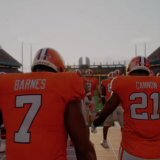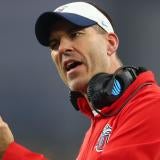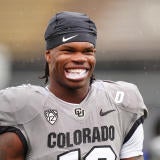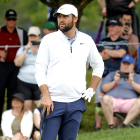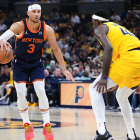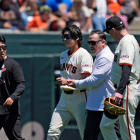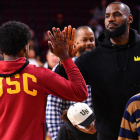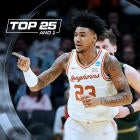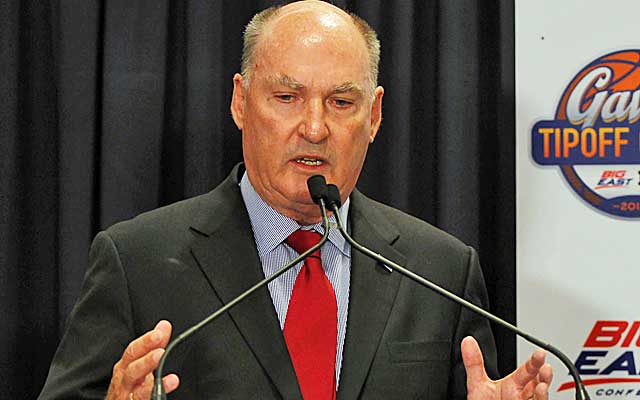
More: O'Bannon news | On CFB: Dennis Dodd | Jeremy Fowler | Jon Solomon
Think real, live detectives snooping around State U.’s athletic department. Think of a detective agency being hired to snoop around State U.’s athletic department.
Actually, think of anything and pass suggestions along to Big Ten commissioner Jim Delany. As part of their duties in NCAA restructuring, the Big Five commissioners are taking a deep look into the association’s enforcement division.
For years – from Miami to Ohio State to USC – you’ve heard the critics of enforcement. Even Congress has gotten involved from time to time. Now the stakeholders seemingly are interested in an overhaul of the NCAA’s most scrutinized department.
Saying the enforcement’s ability to develop information is “overmatched”, Delany told CBSSports.com his autonomy subcommittee will eventually look into a possible retooling of enforcement. The issue is not on the front burner just yet – with cost of the attendance still to be sorted out – but if Delany has anything to say about it, meaningful change is coming.
“I think anybody who is honest about it, realizes there is not much action right now and we need to scrub [clean] it …,” Delany said of enforcement.
The lack of meaningful Division I cases being developed is only one criticism. It’s a matter of what the membership wants, Delany said, “because nobody is comfortable with some of the tactics, aggressive tactics. Some people thought they [investigators] crossed the line. Be that as it may, we have to bring cases that can be proven not just bring cases. Are there other ways to do this?”
This is part of a picture being framed in early talks over how autonomy might affect enforcement. The Power Five conferences will have unprecedented power if, as expected, autonomy is granted in August. Those conferences – Big 12, Pac-12, SEC, ACC, Big Ten – would have control over voting in legislation specific to those high-resource schools.
Delany said enforcement changes could be made that affect mostly the 65 schools in the Big Five – Big 12, Big Ten, Pac-12, SEC, ACC – or all of the 351 schools in Division I.
In an unusual relationship, Delany has consulted on the subject with Julie Roe Lach, the former NCAA enforcement chief. Roe Lach has passed along her longstanding interest in outsourcing enforcement.
“Over time the pendulum has swung on how much enforcement has developed leads in cases,” Roe Lach told CBSSports.com. “You can’t just rely on self reports from schools. You can’t rely just on investigative reporters in media. Should [enforcement] be outsourced? We’re exploring outsourcing surveillance and generating leads.”
Actually, they’re exploring everything. While the former NCAA vice president of enforcement was developing the use of private investigators when she was fired in February 2013 amid the Miami scandal. She detailed for CBSSports.com in February 2012 how the NCAA could hire private investigators on a contract basis to help develop cases.
“Our bylaws,” she said at the time, “don’t preclude it.”
As an expert consultant, Roe Lach has a chance to shape the look of autonomy – if not the NCAA. That’s where there’s obvious irony. The former enforcement chief – ousted after that scandal -- could have a hand in redesigning her old department.
“I always liked Julie and felt like she was an honest broker,” Delany said.
Delany isn’t necessarily high about the use of outside investigators but he does want a way around enforcement’s Rubik’s Cube – developing credible information without subpoena power.
“They’re [enforcement] at a competitive disadvantage when developing information compared to law enforcement,” he said.
“Can we enhance a check off system where institutions are more aggressive at getting information?”
It’s early but one Delany idea is for “raw” information in a case to be turned over to a conference board of directors for scrutiny.
“Maybe there’s a way of collecting information short of indicting,” he said. “We’ve got to be more creative, more honest.”
Delany’s also trying to figure out how to spare penalties to schools that do their diligence but are undermined by, say, a rogue coach like Jim Tressel. Delany referenced the infamous Tatoogate case to make his point.
“The hall of fame coach was gone but the institution turned everything in in short order and did nothing wrong,” he said. “If you do all the right things, how do you focus on the perpetrator from the institution?
“My experience has been that, in some ways, we have more compliance than we did 30 years ago … it’s not the Wild West. There are elements we have today that we didn’t 30 years ago.”
That includes the third-party influence in recruiting that schools, that enforcement and commissioners have yet to get their arms around.
Combine that with what Roe Lach referenced as the now well-known talent drain in the enforcement division in the last couple of years. Several longtime and high-profile enforcement officials left over their own frustrations. Some in enforcement felt undermined by Roe Lach’s firing.
She recently joined the Horizon League as deputy commissioner and is head of her own consulting business.
“They [NCAA] don’t have the current staff to generate cases,” Roe Lach said. “The membership has to decide what kind enforcement they want … They wanted an aggressive staff and now they don’t want it. Now it’s more passive.”
New NCAA enforcement director Jon Duncan said his department has stabilized.
Roe Lach suggested that the NCAA could outsource investigations the way the association has drug testing. The NCAA has contracted with the National Center for Drug-Free Sport for association-wide drug testing since 1999. The center was recently sued and has been criticized for uncovering few violations.
Beyond the NCAA, the center is well-known for also having the NBA, NFL and Major League baseball as clients.
“They [NCAA] could outsource investigations, potentially, an arrangement like a Drug-Free Sport where it’s like a long-term relationship,” Roe Lach said. “You’ve got to understand the world the membership is living in.”
The outsourcing would not involve “adjudication” – meaning the infractions committee – according to Roe Lach. That body, which applies penalties in enforcement cases, already uses outside sources such as retired judges.
She sees enforcement in three separate “buckets” – development of cases, investigation and processing of cases.
A lot of time could be saved, she theorized, with contracted investigators. The NCAA said three years ago the average case was being processed in 11 months. However, high profile cases at USC and Miami each of which took at least four years from start to finish – have raised familiar concerns.
“The point of this is to bring in people that don’t have a dog in the fight but have expertise,” Roe Lach said.
As mentioned, the Power Five commissioners have to wade through cost of attendance and other autonomy issues before taking on enforcement. All 32 commissioners will be assembling this week at the Collegiate Commissioners Association meeting in Laguna Niguel, Calif.
“I think this [enforcement] is next,” Roe Lach said. “This is not even on Delany’s top three but after he gets through with the [CCA] agenda this week, enforcement will be in top three next year.”








